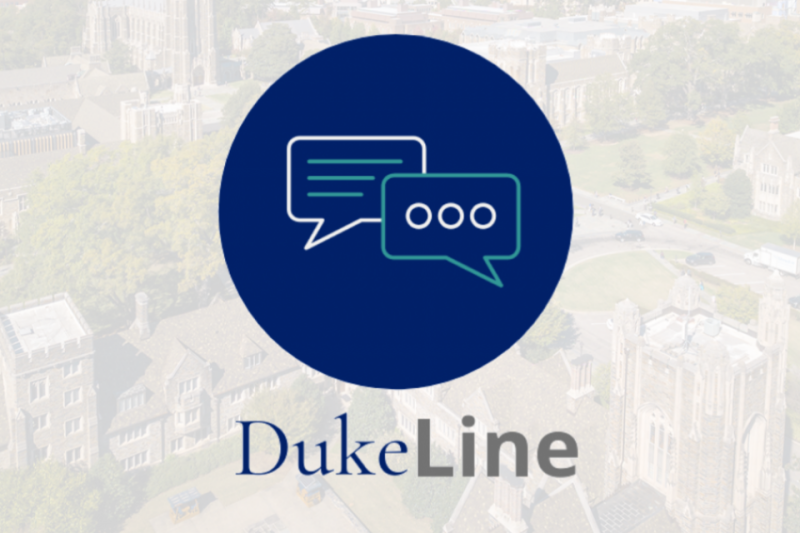
A new student-operated texting platform called DukeLine has a single goal: improving the mental health of students through quick peer response. Managed by a team of 21 Duke undergraduates, the program provides anonymous peer support within minutes of outreach.
“There are a lot of barriers to students reaching out for help, including personal shame, skepticism about effectiveness and concerns about being misunderstood,” said Nancy Zucker, PhD, an associate professor in psychiatry and behavioral sciences who advises the program. “Texting a trained peer is a low-stakes option for a student to test what it feels like to share something vulnerable — and to have that experience be helpful and meaningful.”
Zucker supervises the DukeLine program and teaches a semester-long peer coaching course that all students participating in DukeLine are required to complete. With help from a Bass Connections team, she also developed a develop a high-quality, customized database that the peer coaches can search in real time while providing support.
Peer support programs have been gaining in popularity on college campuses. They can offer an important supplement to more formal, professional options, said Sarah Gaither, an assistant professor of psychology and neuroscience.
“This program is not intended to replace any existing resources for Duke students,” said Gaither, a DukeLine faculty adviser. “But it is a great option for students who don’t necessarily need formal psychiatry or clinical help, and also want access to free, anonymous support from someone they feel can understand the student experience.”
Gaither, who directs the Duke Identity & Diversity Lab, has encouraged the program to seek positive outcomes for underrepresented minority and international students.
“I think DukeLine is unique because we realize that not all students from underrepresented backgrounds understand each other’s experiences,” Gaither said.
DukeLine also takes a rare approach in prioritizing its student coaches. While peer support programs benefit students generally, little attention has been paid to how the programs may affect the student coaches who provide support.
“Coaching can be triggering and there is a lot of stress and burnout,” Zucker said. “We’re focused on how the program benefits student users, and we’re also tracking how participation affects our peer coaches, who are students first.”
Gaither agrees.
“Our design provides a much stronger support system for peer coaches than we’re seeing at other institutions,” she said. “For-credit course training, shorter on-call shifts, being paired with a clinical psychology graduate student — these are all deliberate measures to create better support for students on both sides.”
Though the program is still in early stages, feedback from DukeLine users has been overwhelmingly positive. Currently, the service is provided in three undergraduate dorms. The eventual hope is to expand more broadly across campus, and to provide access to graduate students.
The DukeLine program is supported by a grant from the Charles Lafitte Foundation.
This article was originally published in Duke Today.